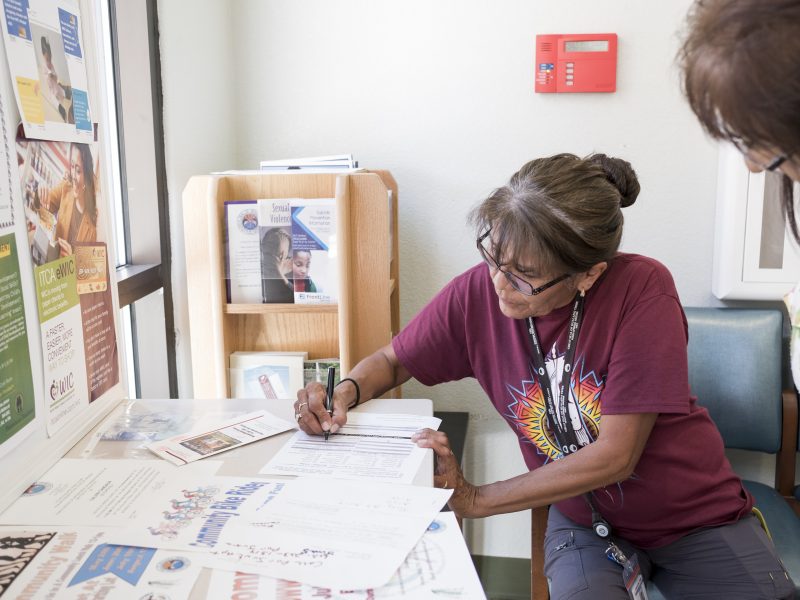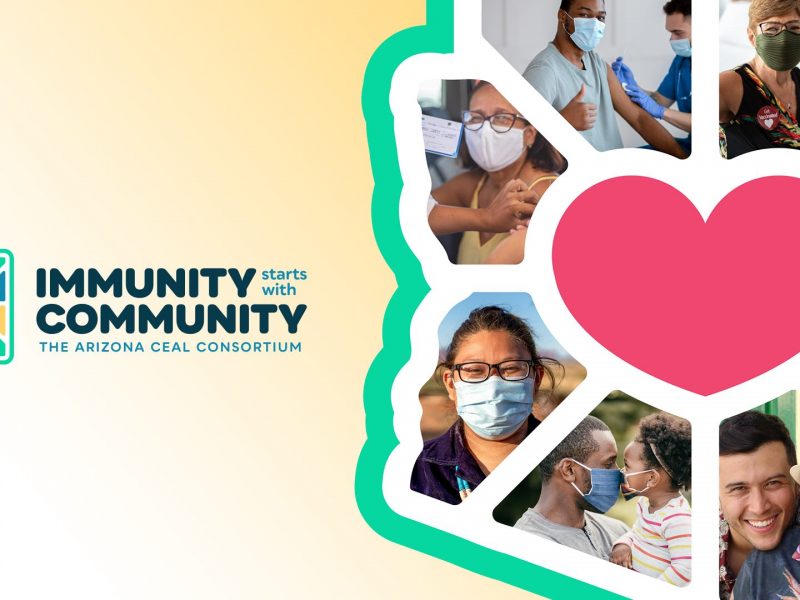Community Engagement Alliance Against COVID-19 Disparities (CEAL)
AZ CEAL’s mission
The Community Engagement Alliance (CEAL) Against COVID-19 Disparities works closely with the communities hit hardest by COVID-19.
The Arizona CEAL Consortium is a collaboration of Northern Arizona University, University of Arizona, Arizona State University, Mayo Clinic, and the Arizona Community Health Worker Collaboration.
In partnership with members and leaders of African American, Latino/a/x and American Indian communities, we aim to: provide trustworthy information through active community engagement and outreach to the people hardest-hit by the COVID-19 pandemic, with the goal of building long-lasting partnerships as well as improving diversity and inclusion in our research response to COVID-19.
In partnership with members and leaders of African American, Latino/a/x and American Indian communities, we aim to: provide trustworthy information through active community engagement and outreach to the people hardest-hit by the COVID-19 pandemic, with the goal of building long-lasting partnerships as well as improving diversity and inclusion in our research response to COVID-19.
NAU CEAL partners with AzCHOW
- Strengthen the Community Health Worker workforce response to COVID-19 prevention vaccine efforts through capacity building and statewide training
- Build vaccine confidence through social media campaigns among diverse, rural youth aged 16-25, and college enrolled students of northern Arizona
Meet the team
Samantha Sabo, DrPH, MPH associate professor of health sciences and CHER senior researcher serves as a Multiple Principal Investigator (MPI) for the Arizona CEAL.
NAU co-investigators
- Regents’ Professor Julie Baldwin, CHER executive director
- Nicolette Teufel-Shone, CHER associate director
- Naomi Lee, assistant professor, Chemistry and Biochemistry
- Amanda Pollitt, assistant professor, Health Sciences and CHER
- Joseph Mihaljevic, assistant professor, School of Informatics, Computing and Cyber Systems
- Dulce Jiménez, CHER research coordinator, Sr.

Projects
Community health workers (CHWs) — also referred to as community health representatives (CHRs) and promotores — are “frontline public health workers who are trusted members of the communities they serve,” according to the American Public Health Association. As such, they have a unique understanding of their community’s experiences during the COVID-19 pandemic.
AzCHOW partnership
Through CEAL, NAU researchers partnered with the Arizona Community Health Workers Association (AzCHOW) to develop and disseminate accurate, up-to-date COVID-19 information for community health workers to give to their communities.
To learn about what local communities are experiencing during the COVID-19 pandemic and their opinions and beliefs, we conducted focus groups with CHWs/CHRs Promotores. Their ideas and opinions are used to develop and adapt COVID-19 educational materials and health education messages. CHWs and CHRs then use the materials to serve their clients for COVID-19 prevention, including COVID-19 vaccine education, and COVID-19 research.
It’s Our Turn youth contest
CEAL’s It’s Our Turn contest invited youth and young adults between ages of 14 to 25 to share their creative take on a health message about COVID-19 vaccination, wearing a mask, or another pandemic-related health effect on youth. There were 12 winners selected by Arizona community members — each winning a $250 gift card.
Training videos
CEAL Against COVID-19 Disparities reports
- Focus Group Results: Hispanic/LatinX Community Health Workers
- Focus Group Results: American Indian Community Health Representatives
- Conversations with Community Health Workers Research Brief
In the news
- Calling youth: ‘It’s Our Turn’ contest, ‘I Got the Shot’
- NAU researchers expand COVID-19 education and outreach through key collaborations
- Processing COVID-19 through art
National Institutes of Health (NIH) resources
The Community Engagement Alliance (CEAL) Against COVID-19 Disparities works closely with the communities hit hardest by COVID-19.
Today, there are CEAL teams across 21 states, the District of Columbia, and Puerto Rico. The program collaborates with nearly 1,000 organizations and community partners — including health care providers and hospital systems, academic and research organizations, schools, faith-based groups, nonprofits, and other community-based organizations.
Find NIH resources developed by CEAL teams to share and provide accurate information and encourage people to get informed.
Find NIH CEAL resources